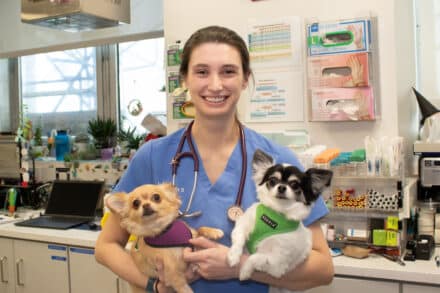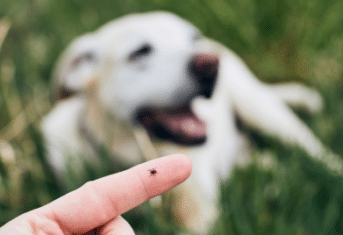False Pregnancy in Dogs

False Pregnancy in Dogs
There has been a recurrent question on the WebMD Pet Health Community website lately. Although the question has been asked in several different ways, the dog owners asking the question needed information about pseudopregnancy in their unspayed female dogs.
Some dog owners questioned the physical and behavioral changes occurring in their dogs about two months after the heat cycle ended. Their dogs developed a distended abdomen and milk in the mammary glands — even though the female dog had not been mated and was not pregnant. Other owners noticed their dog nesting in a dark closet or under the bed. Once the dog made a nest, she collected toys or other favorite objects to put in the nest and protect as if she was guarding a litter of puppies. Gradually, the signs of pseudopregnancy wore off without any medical intervention.
Pseudopregnancy occurs in dogs because the dog’s reproductive cycle is very different than the human reproductive cycle. Dogs are “in heat” roughly twice a year. The scientific term for “in heat” is estrus. Estrus is defined as the length of time a female dog can conceive a litter of puppies. Following estrus, the hormone progesterone is elevated independent of pregnancy status. Progesterone declines more rapidly in the non-pregnant female and this hormonal change tricks the brain and body of a female dog into thinking she is pregnant, hence the name pseudopregnancy. Another name which is sometimes used for this condition is pseudocyesis.
Even though pseudopregnancy does not hurt your dog, you can prevent it since the condition intensifies with each subsequent heat cycle. Spaying is the treatment of choice for this condition and spaying has other health benefits as well. Spaying prevents another progesterone induced condition, pyometra. Pyometra is the fancy term for an infected uterus. If this occurs in your female dog, it can be a life threatening disease requiring emergency surgery. Finally, spaying a female dog before the first heat dramatically reduces the risk of mammary gland cancer.
_________________________________________________
For nearly a century, The Animal Medical Center has been a national leader in animal health care, known for its expertise, innovation and success in providing routine, specialty and emergency medical care for companion animals. Thanks in part to the enduring generosity of donors, The AMC is also known for its outstanding teaching, research and compassionate community funds. Please help us to continue these efforts. Send your contribution to: The Animal Medical Center, 510 East 62nd Street, New York, NY 10065. For more information, visit amcny.gbtesting.us. To make an appointment, please call 212.838.7053.
































